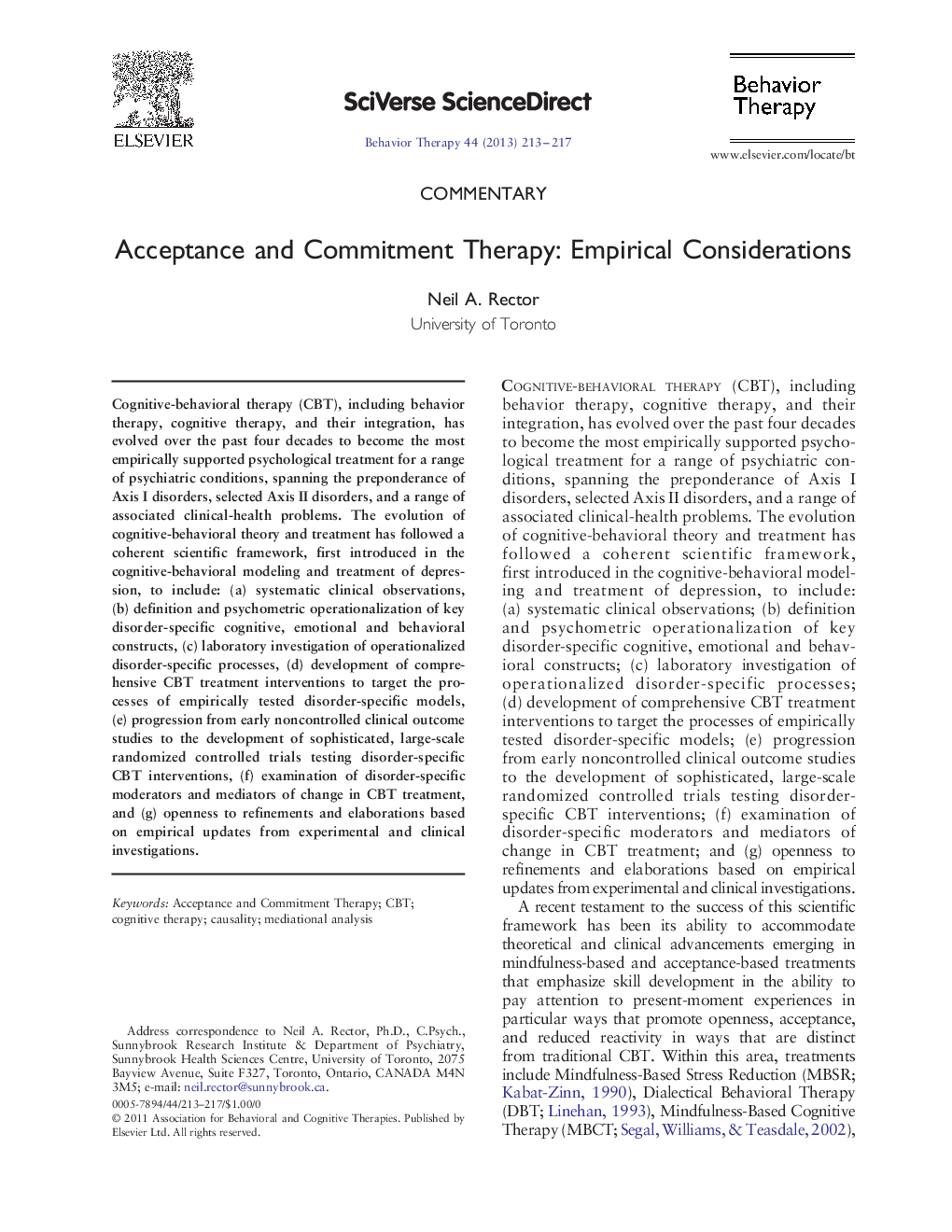| Article ID | Journal | Published Year | Pages | File Type |
|---|---|---|---|---|
| 901299 | Behavior Therapy | 2013 | 5 Pages |
Cognitive-behavioral therapy (CBT), including behavior therapy, cognitive therapy, and their integration, has evolved over the past four decades to become the most empirically supported psychological treatment for a range of psychiatric conditions, spanning the preponderance of Axis I disorders, selected Axis II disorders, and a range of associated clinical-health problems. The evolution of cognitive-behavioral theory and treatment has followed a coherent scientific framework, first introduced in the cognitive-behavioral modeling and treatment of depression, to include: (a) systematic clinical observations, (b) definition and psychometric operationalization of key disorder-specific cognitive, emotional and behavioral constructs, (c) laboratory investigation of operationalized disorder-specific processes, (d) development of comprehensive CBT treatment interventions to target the processes of empirically tested disorder-specific models, (e) progression from early noncontrolled clinical outcome studies to the development of sophisticated, large-scale randomized controlled trials testing disorder-specific CBT interventions, (f) examination of disorder-specific moderators and mediators of change in CBT treatment, and (g) openness to refinements and elaborations based on empirical updates from experimental and clinical investigations.
